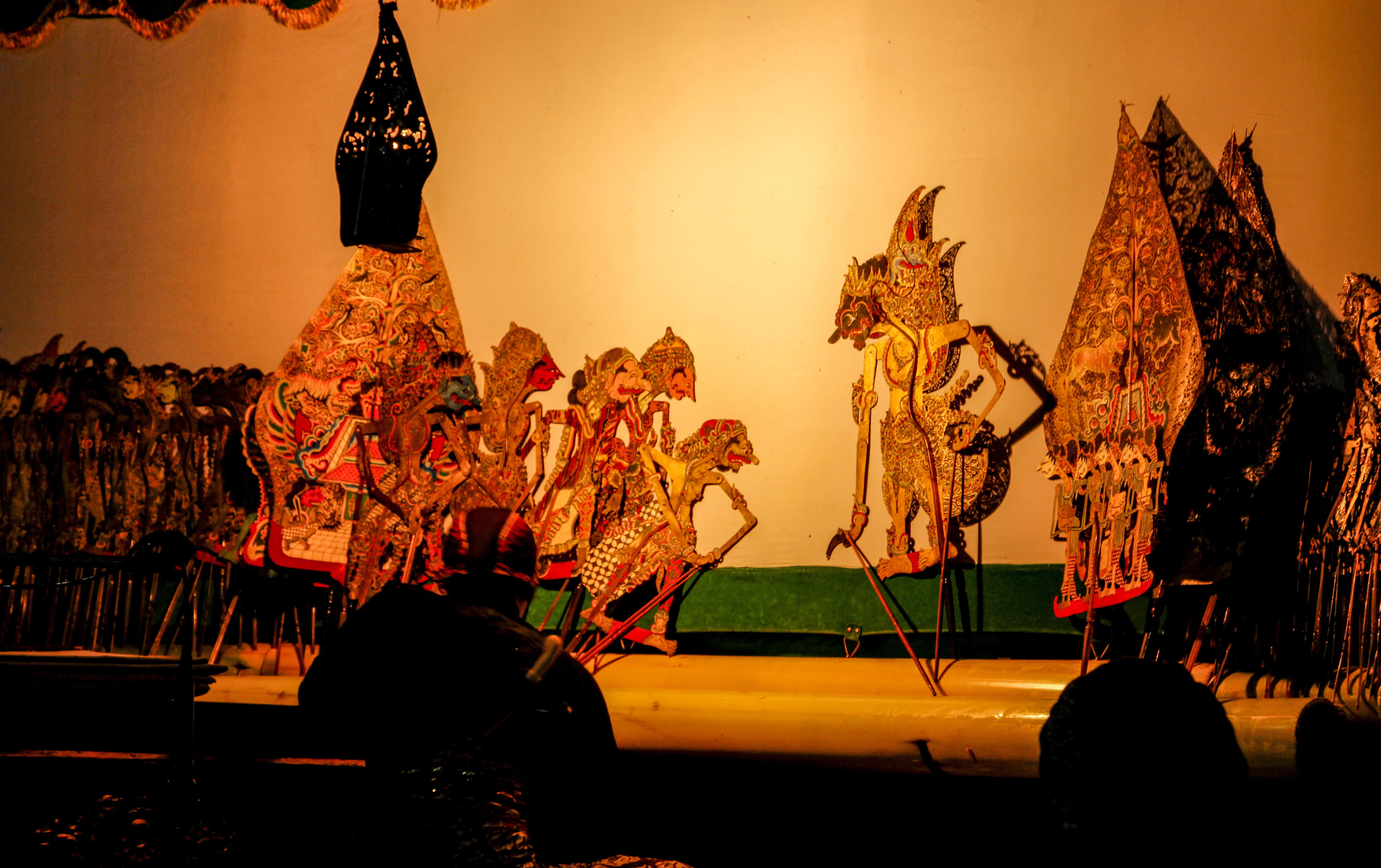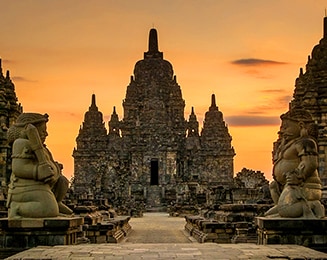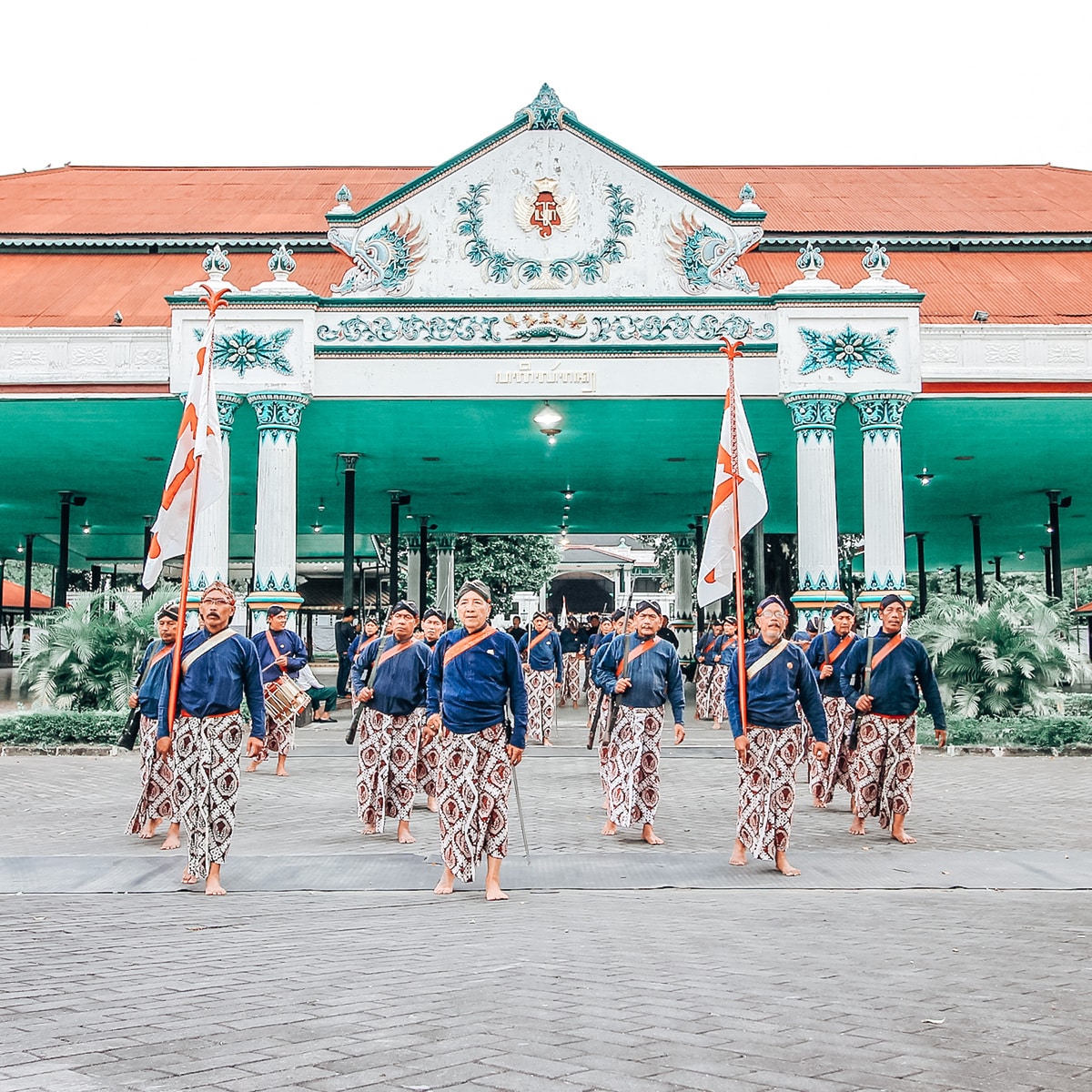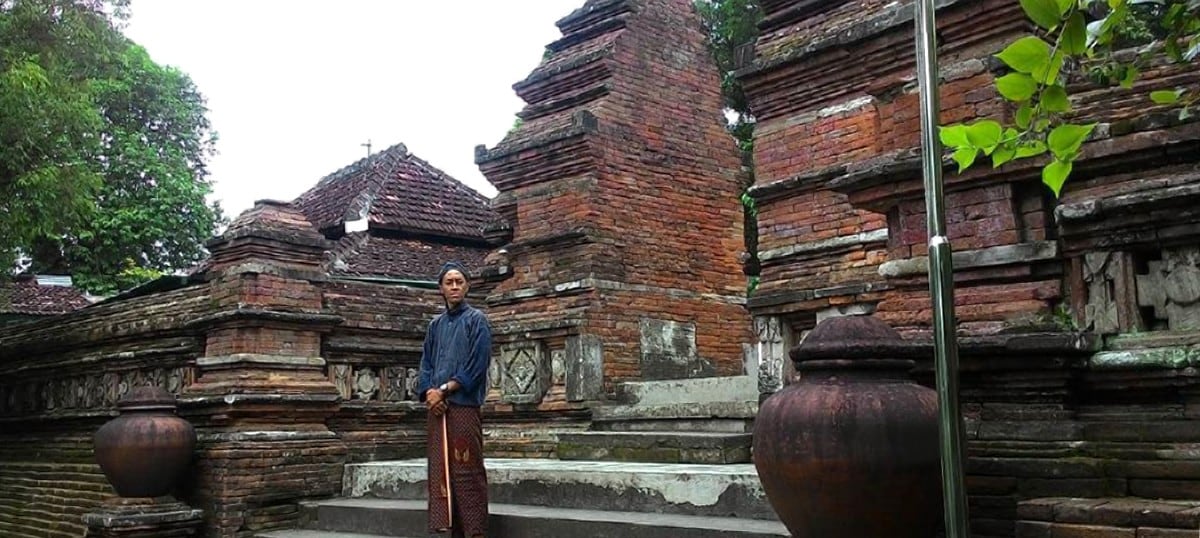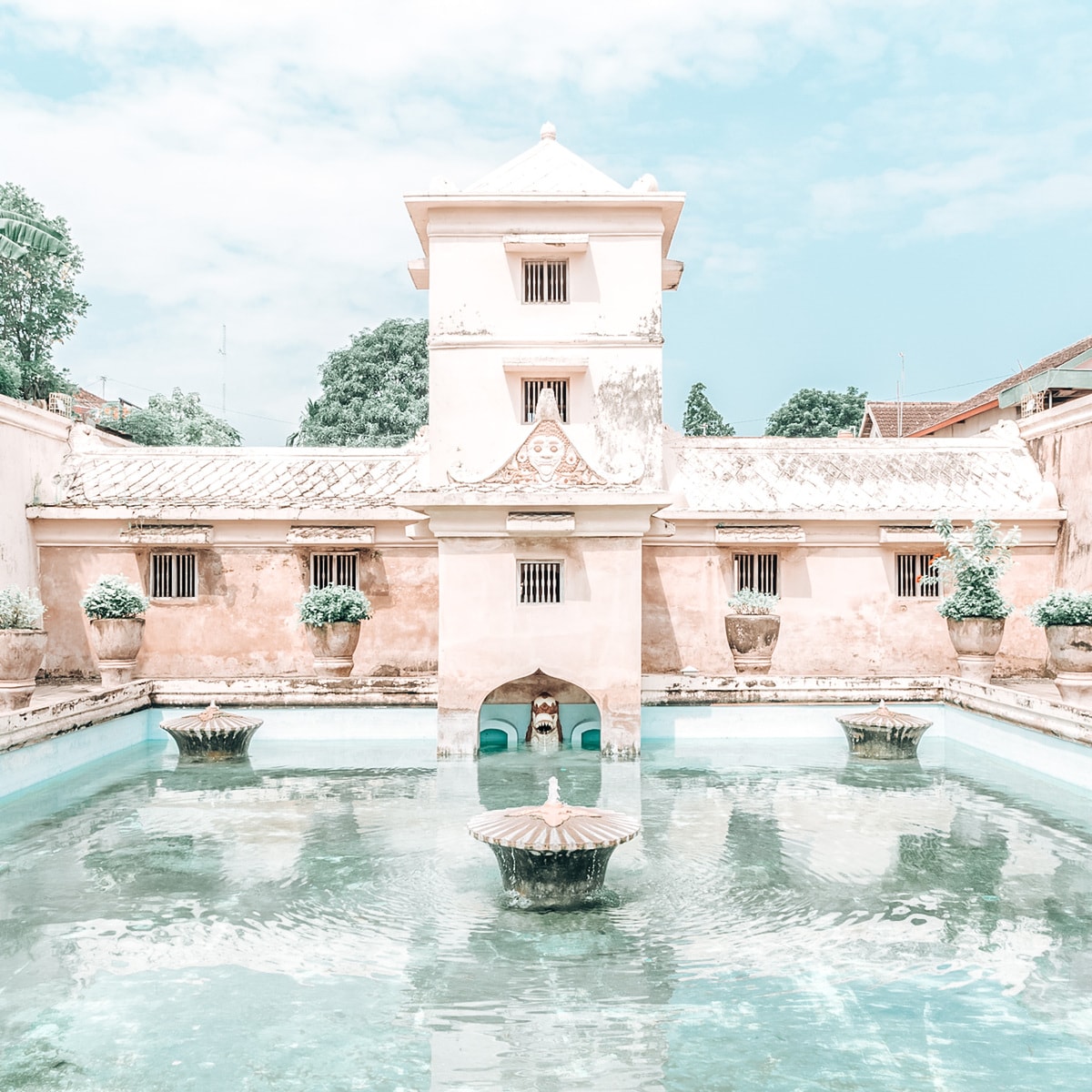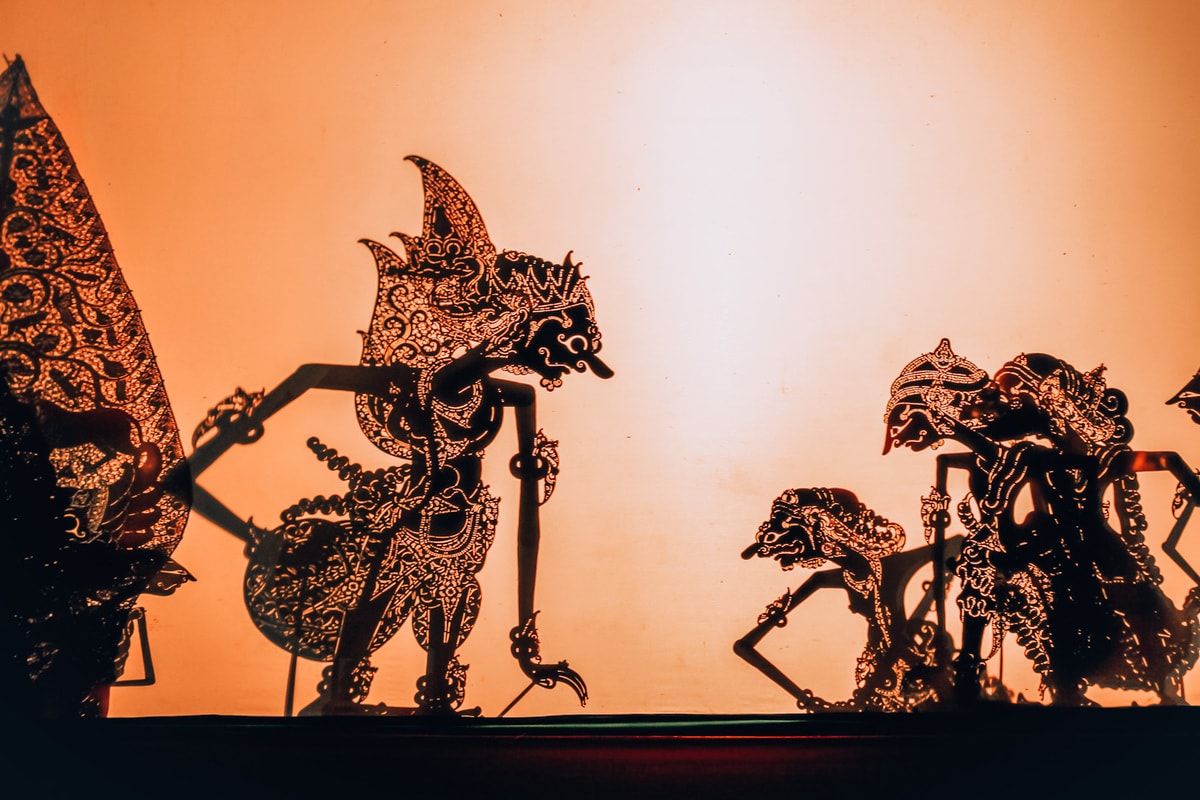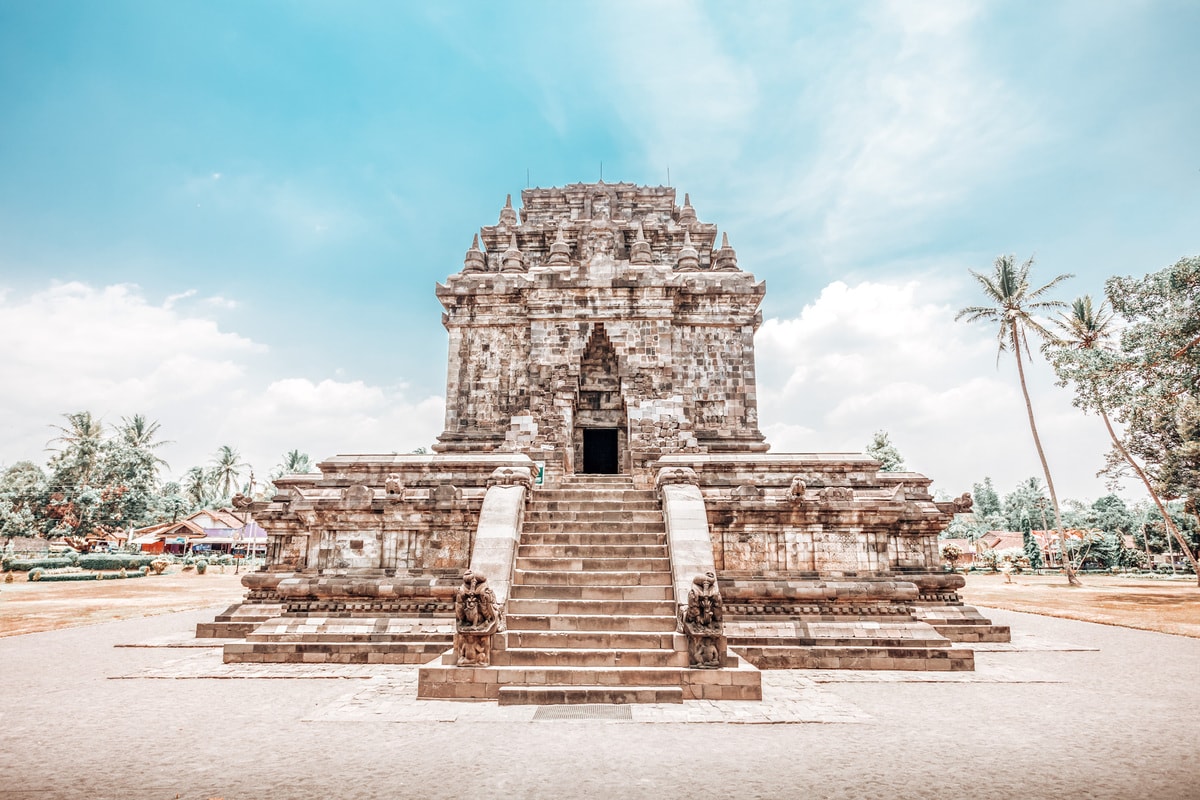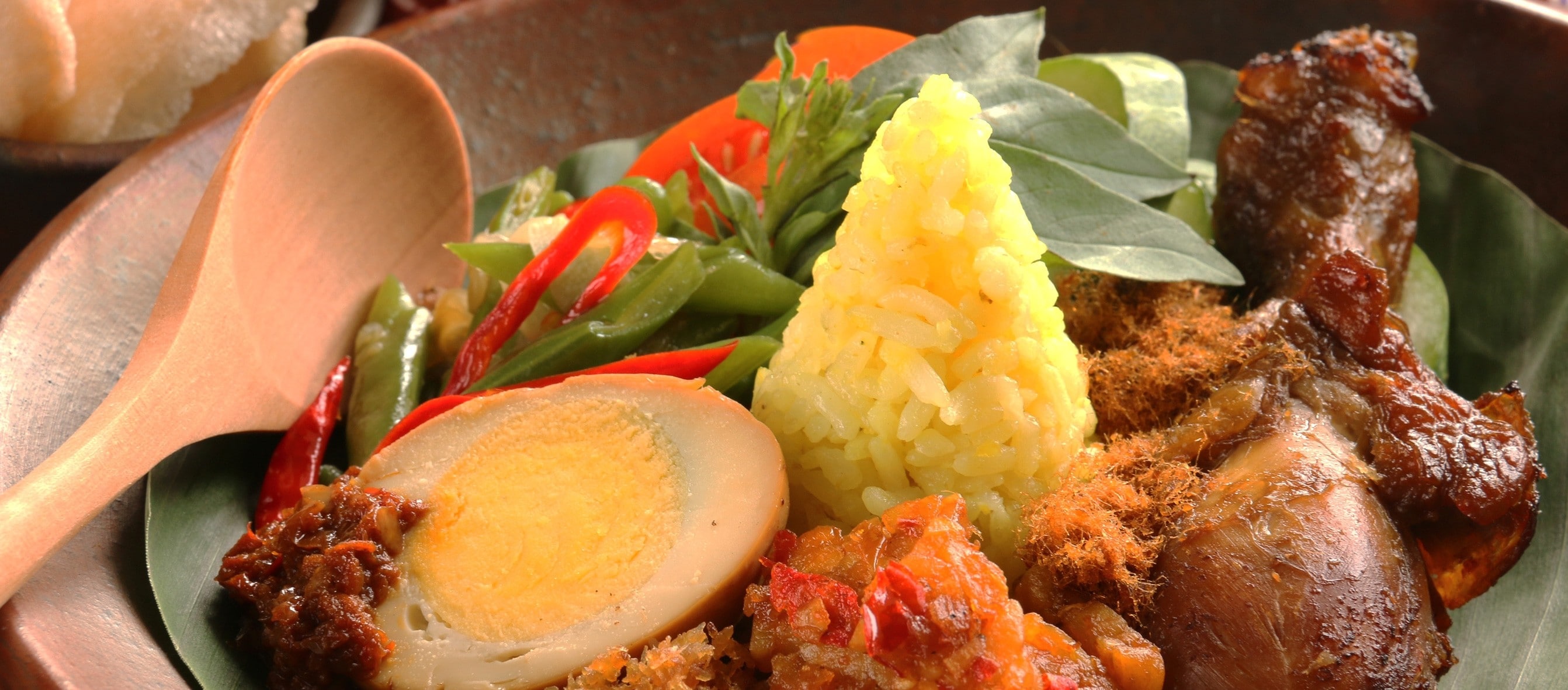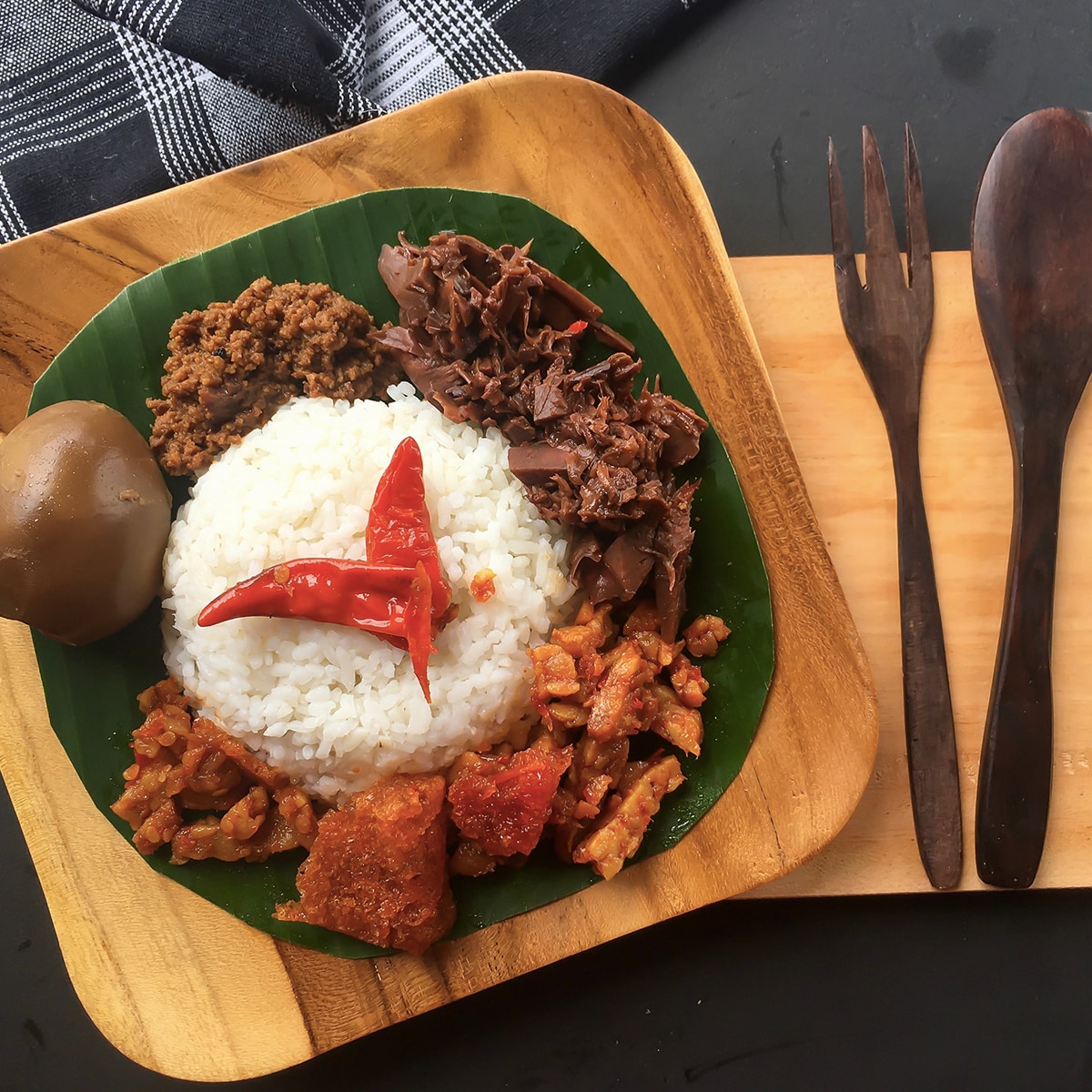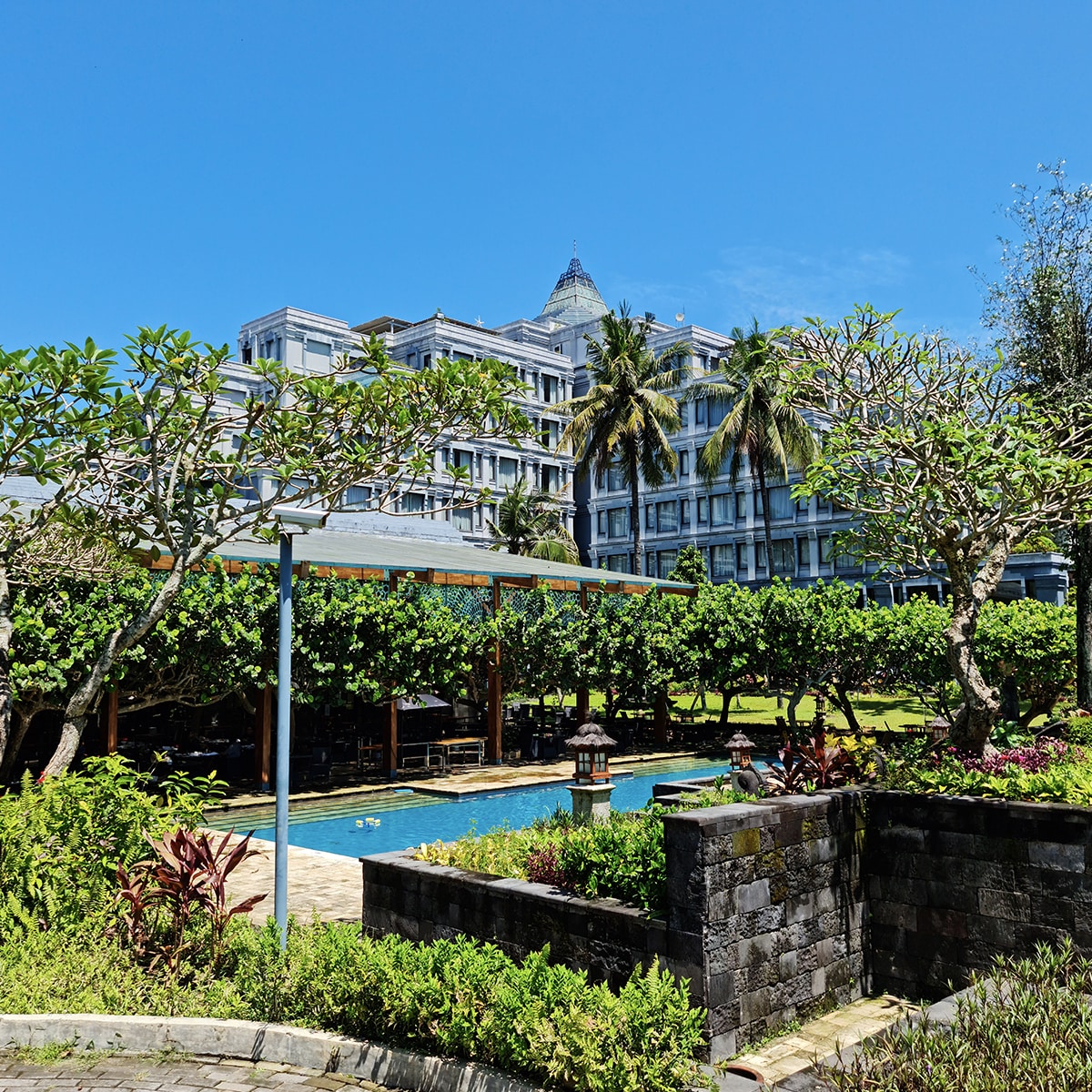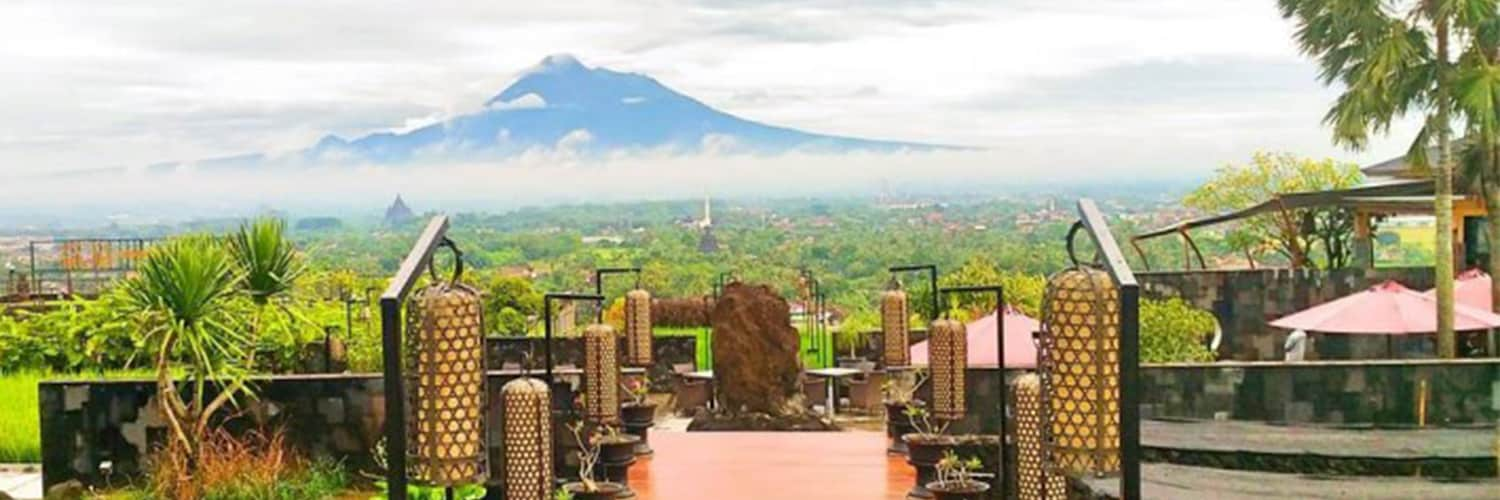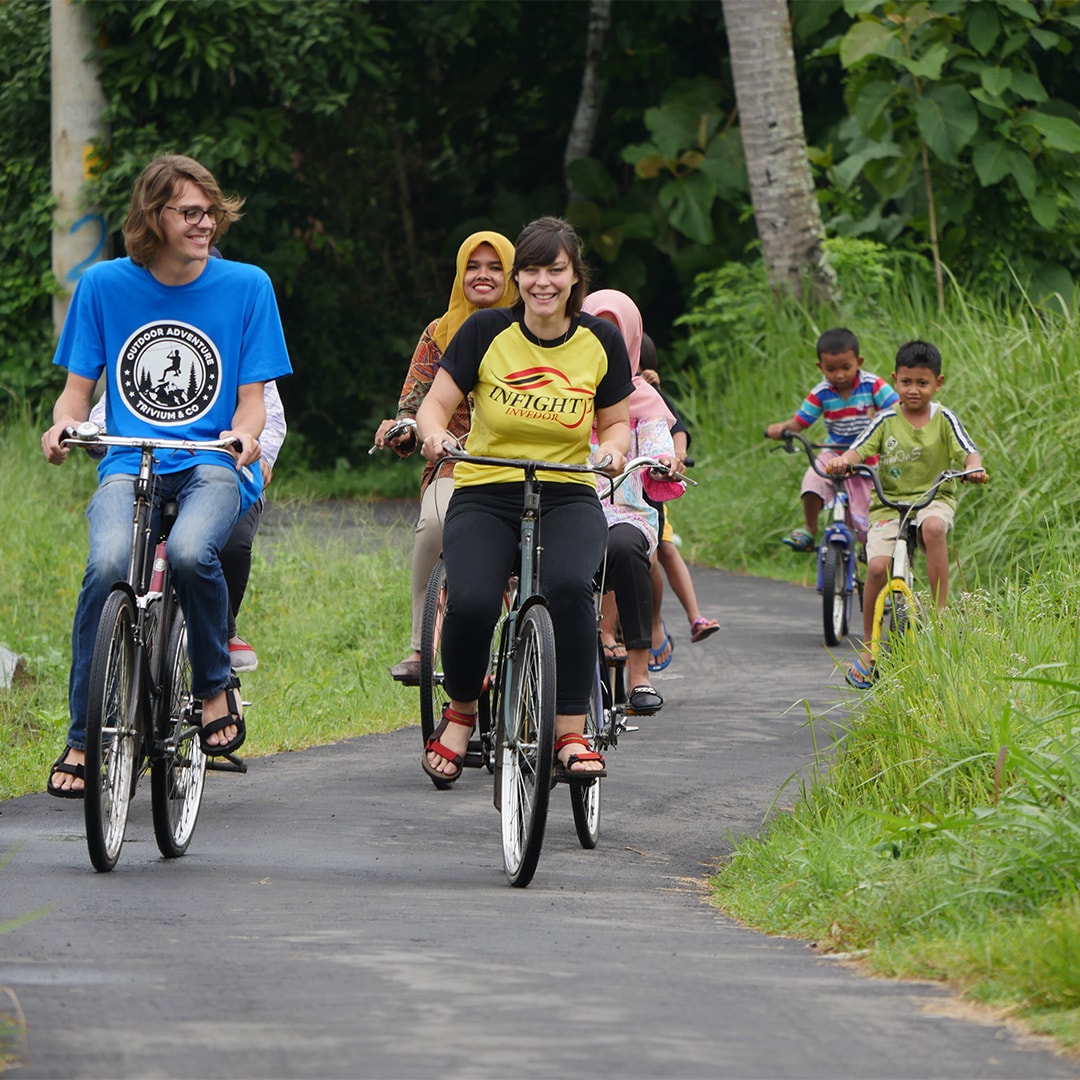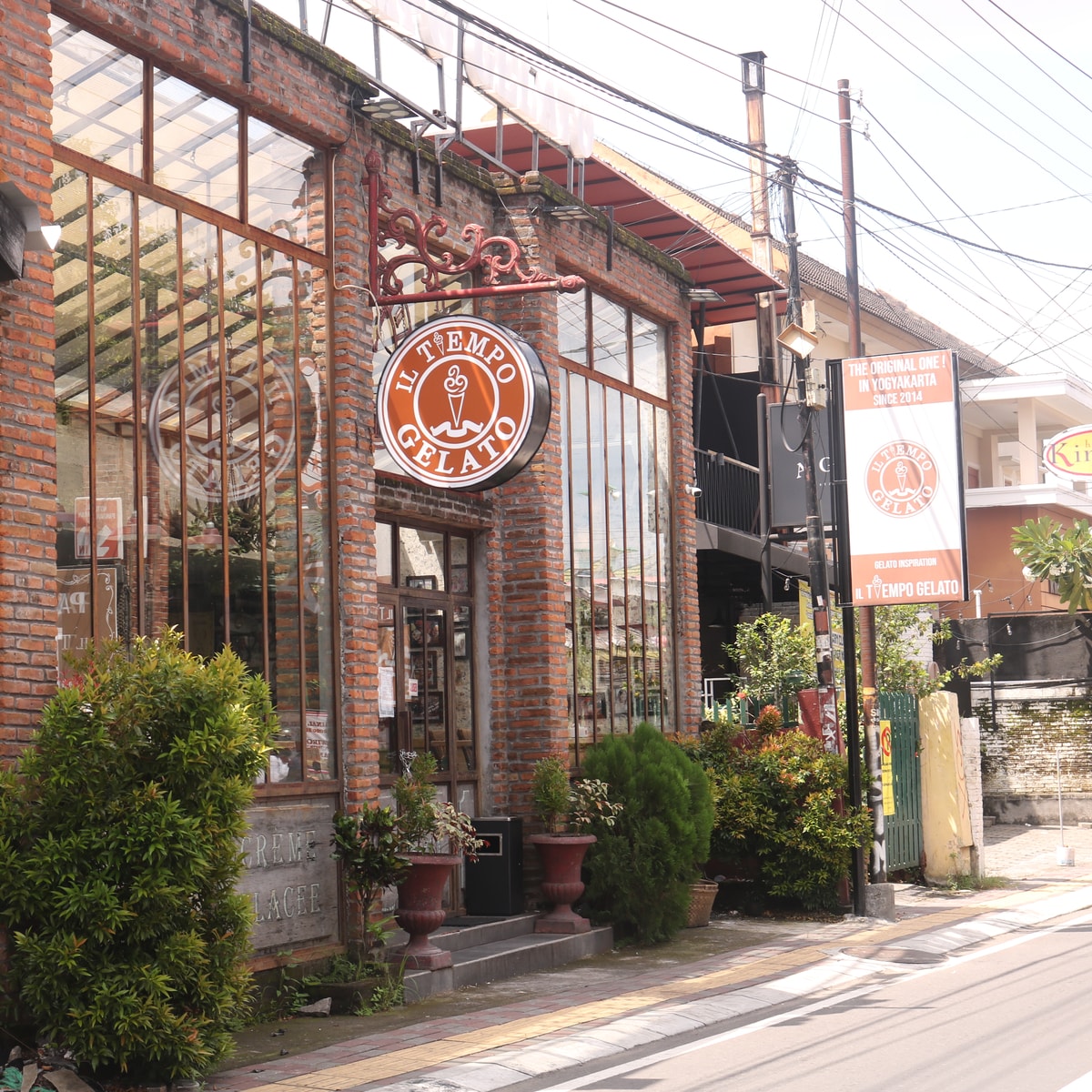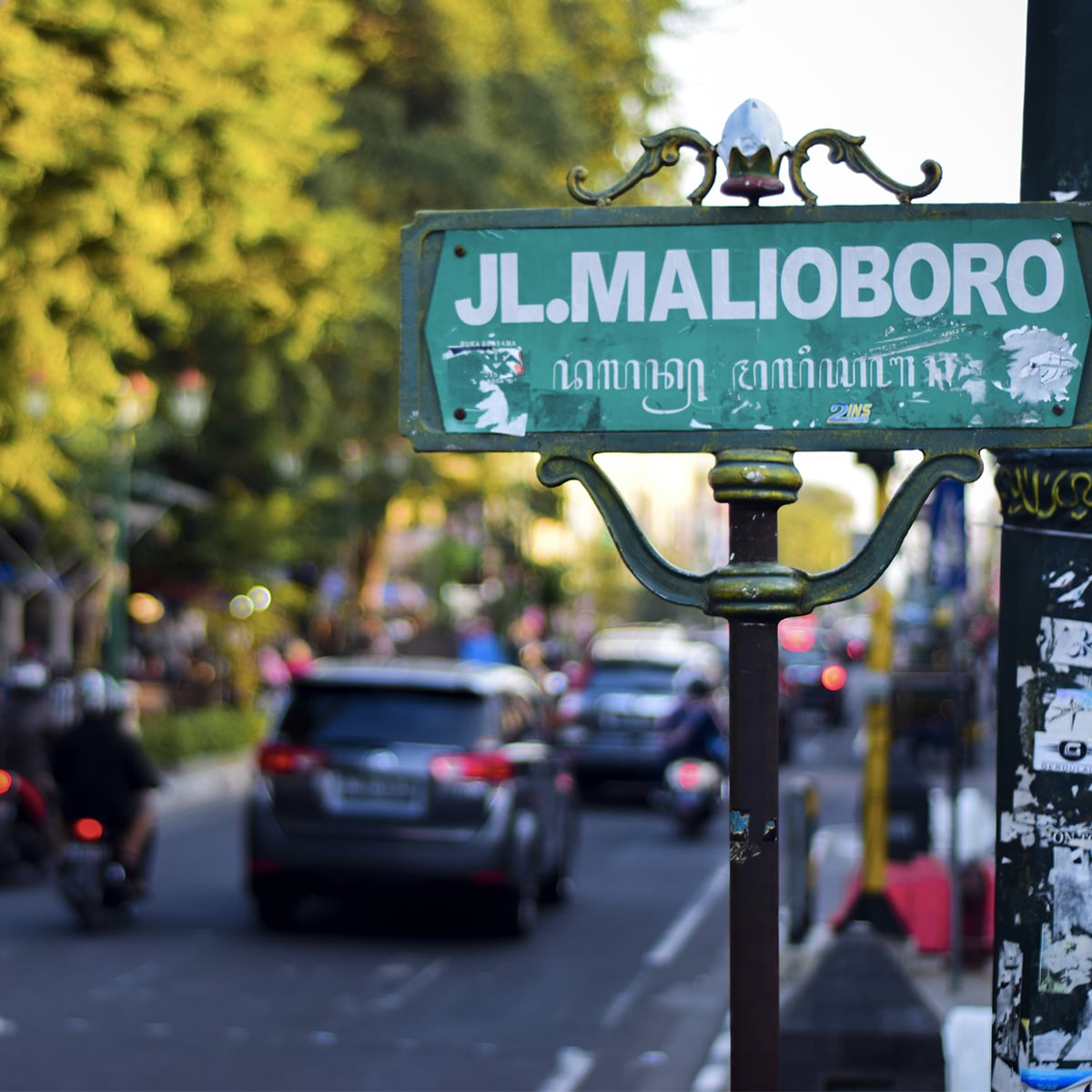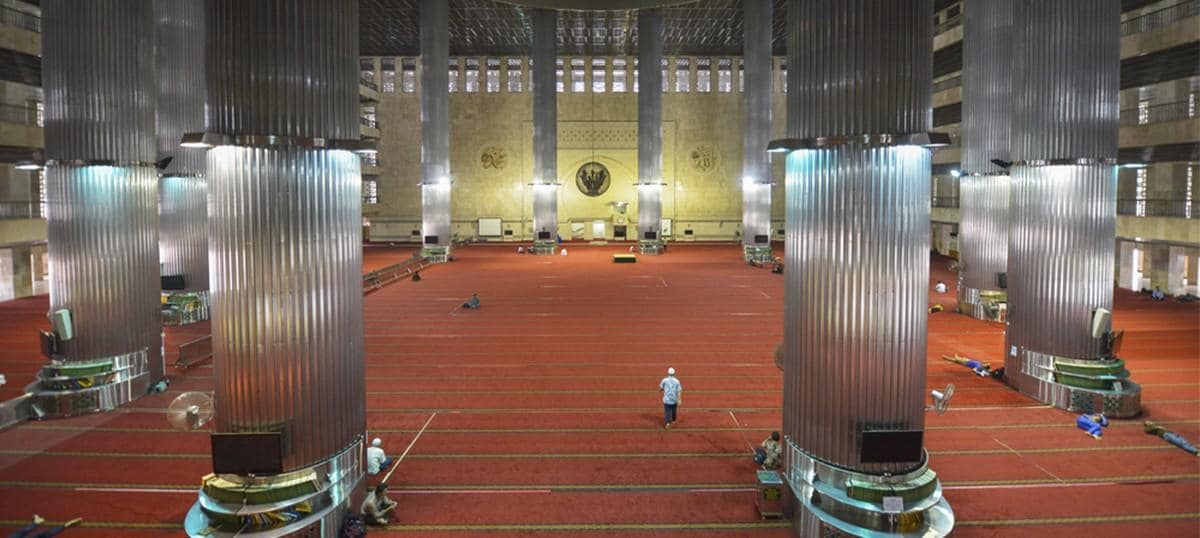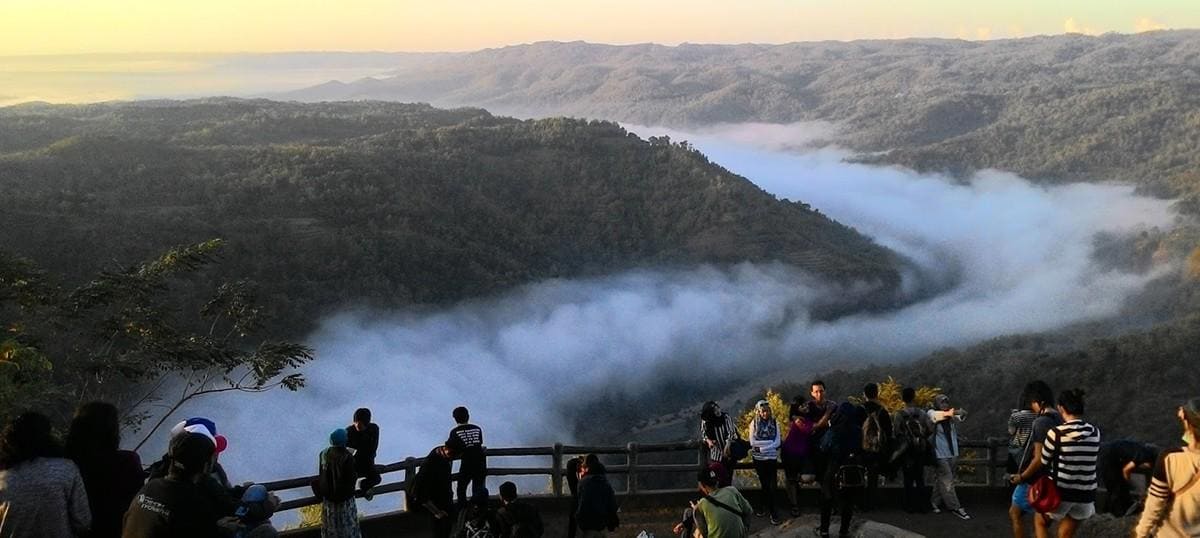Although the audience watches the story unfold in shadows of figures thrown from behind the screen, the characters of the play are not mere puppets, but are in fact crafted of very finely cut and carved untanned leather which are then beautifully painted over. For this reason, in Indonesia, the performance is called Wayang Kulit, or the Wayang Leather puppet performance, to distinguish it from other forms of wayang puppets that may be made of wood, for example.
Wayang stories are usually taken from episodes of the Hindu classic sagas of the Mahabharata and the Ramayana. These stories are not only entertaining but, moreover, teach lofty values and contain deep philosophical thoughts. Accompanied by the remarkable live music of the Javanese gamelan percussion orchestra, Wayang Kulit performances are always present during folk festivities and significant events such at births, weddings, or other celebrations, and lasts the whole night. The particular story presented and messages conveyed are usually relevant to the event.
Wayang stories involve moral and ethical dilemmas faced by the characters in their journey through life, love, and war. The stories are about good versus evil, but more than that, they contemplate the existential struggle between right and wrong. They are about the pursuit of living a virtuous, noble life and the search for meaning in life.
The Wayang-themed activities encourage further exploration of moral life goals, integrity, sense of responsibility, perseverance and care for others. For example, making wayang puppets (menatah) would require patience and motivation to do better, and improve oneself. Playing the puppets (mendalang) also tells a moral story that intends to enlighten as well as entertain.
Get There
Located in Kepuhsari, in the Wonogiri Regency, Central Java Province, the Wayang Village is only a two hours bus ride away from Solo and Yogyakarta. From Yogyakarta, Take the bus from Giwangan Terminal to Semin. From Solo Balapan Train Station, you can take the bus (towards Praci) and stop at Cengkal.
Indonesia’s art of Wayang Kulit, more popularly known as the Wayang Shadow Play, is among the world’s greatest story-telling tradition and is recognized by UNESCO as a Masterpiece of Oral and Intangible Heritage of Humanity. Embedded in the ancient Javanese culture since the 8th century, the art has been performed in villages to cities and royal courts for hundreds of years, and remains very much alive until today.



